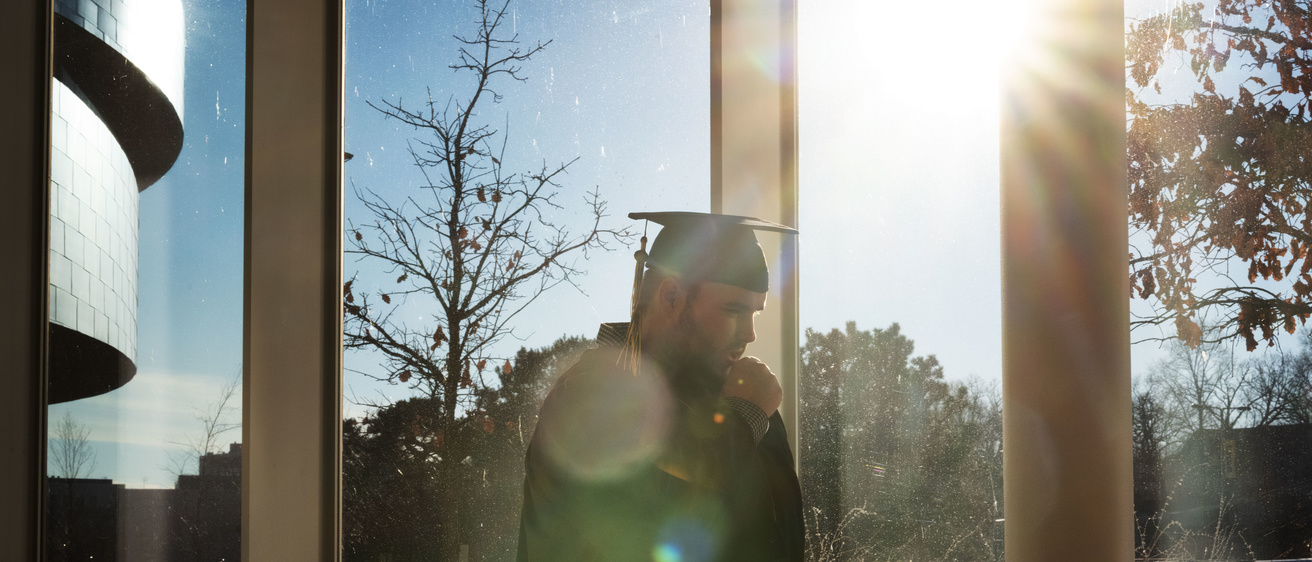
Ways to Make a Difference
We can all make a difference!
Every member of the University of Iowa community has the power to positively impact the lives of our students.
First-generation college students, in particular, often navigate unique challenges as they pursue their education. With intentional support from faculty and staff who are committed to their success, these students are more likely to thrive—academically, personally, and professionally.
Your dedication can shape how first-gen students experience college, helping them unlock their full potential and achieve their goals. This page offers a collection of practical strategies that faculty and staff can integrate into their daily work to support first-gen students—and, in doing so, uplift all students at the University of Iowa.
Show Your Commitment to Students!
Thousands of University of Iowa faculty and staff were once first-generation college students themselves.
If you’re one of them, we encourage you to share your story with your students! A simple way to start is by displaying the “Proud to be First-Gen” 1stGen@Iowa Emblem—add it to your syllabus, office door, or course ICON site. It’s a small gesture that can make a big impact by helping students feel seen and supported.
Not first-gen yourself, but passionate about supporting first-gen students?
You can still show your commitment by using the “Proud to Support First-Gen” 1stGen@Iowa Emblem. Or, first-gen faculty and staff can double up and display both emblems! Whether you're faculty or staff, your visible support helps foster a more inclusive and encouraging environment for all students.
Tell First-Gen Students You're Proud to Support Them!
1stGen@Iowa Emblems
1stGen@Iowa Emblems can be downloaded and printed or used electronically. Hang them in your workspace, add them to your syllabus, or display them in your office. The possibilities are endless!
Limited SWAG is also available: removable stickers and magnets
Contact us for availability
To download the 1stGen@Iowa Emblems, right-click on the image and "save image as" to your computer.
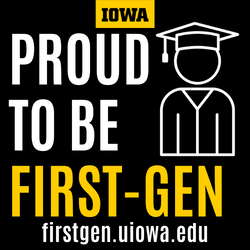
|
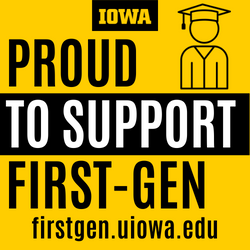
|
Strategies to Help First-Generation College Students Succeed
How can you personally support first-generation students and in the process better support all students?
Consider implementing some of these strategies:
- Make no assumptions: For example, do not assume that students know how to navigate what you think is a simple or less complex procedure or system or policy. In addition to providing an explanation for how to navigate these things, help students understand the "why" behind them. Do not assume that all first-gen students are proud to share this identity with others (it takes some students longer to realize this is something we celebrate) or even know they're first-gen. Do not assume that all first-gen students share the same experiences and identities.
- Allow space for flexibility: Practice empathy whenever and wherever possible. Develop policies, due dates, and meeting times/office hours that are flexible. Take into account changes in student demographics and familial obligations and consider how these may impact students' academic responsibilities. For example, let students know that if they have sick child or family member, you will be willing to work with them to make up missed work due to family care needs.
- Clarity matters. Be mindful of clarity in your instructions and expectations; remember that some words or phrases have dual meanings. For example, the term biweekly can mean every two weeks or twice a week. Another example- don't just say, "Come to my office hours." Instead, explain what these are, why they are important, what students can expect/what they should bring with them, and how students can still meet with you in the event that they are not available during your scheduled office hours as none of this may be clear to some of your students.
- Language matters. When it comes to terminology, assume that most students, especially first and second-year students, are not familiar with terminology that is specific to your discipline, department, or even higher education. Help students demystify higher education. Refrain from using too many confusing acronyms or terms on their own. Keep in mind that students do need to learn this information in order to successfully navigate college and professional careers so don't omit it completely. Instead, provide context and explanations of what you're referencing. And do this often, not just at the beginning of the semester when students are often overwhelmed with new information.
- Introduce yourself: Clear up any confusion that students may have about how you expect or want to be addressed, and ask them about their preferences as well. For example, on your first day of class, and in the syllabus, let students know how they can address you (Dr. Ms., Professor, Sarah, etc). If you were first-gen, share this with them too! In your work with students, introduce yourself (and/or make sure your name tag is visible). Keep in mind that while you may be comfortable sharing your first-gen status with students, not all first-gen students are comfortable sharing this information with their peers. Because of this, best practices suggest that instructors do not formally ask first-gen students to identify themselves in the classroom.
- Encourage help-seeking behaviors. Emphasize the importance of seeking help early and often, and give examples of what help-seeking behaviors students should engage in, not only for your course but personal wellness in general (come to office hours, visit the Writing Center, meet with a mental health practitioner, etc.). Point out that students who ask for help are taking necessary steps to be successful in college (and in life!). If a student is struggling in your class, connect them with campus resources. Not sure how to do this? Contact us and we will be happy to help you!
- Lean into your students. If something seems off or is worrisome, check in with the student. If you don't feel comfortable doing this or need additional help, the Dean of Students website offers additional resources and for you to get help now: https://dos.uiowa.edu/assistance/get-help-now
- Start on day one: On the first day of class, model and share reading strategies from your field and demonstrate note-taking strategies that work best for your approach to teaching. Check in periodically with students to confirm that they are following lectures and assigned readings okay, and able to connect these two things together. Building relationships is key to students' success and begins on day one of your interaction, no matter if you're inside or outside the classroom setting.
- Communicate belongingness and mattering: A sense of belonging and knowing that every person matters is imperative to all students' success. Celebrate students' successes with them and show support when they're struggling. Let students know that their opinion and input matters, and that you truly value their contributions to our campus community.
- Collect regular feedback: If you're an instructor, consider developing ways for students to complete anonymous course evaluations at the half-way point of the semester (or ongoing throughout the semester). Consider ways your office might be able to collect student feedback through post-service surveys, question boxes, etc.
- Be patient: While all new students need time to adjust to college life (and all the opportunities and constraints that come with it), keep in mind that first-gen students' experience with this process may look different. They may not have someone at home who is encouraging them to go to supplemental instruction, get a campus job, use the interlibrary loan option, or talk to their academic advisor about dropping a class. It takes time to learn all of the in's and out's and what-have-you's of navigating this thing we call higher education. Be patient with students and remember that some of them are coming to college with more social and cultural capital and "college knowledge" than others.
Download Handouts
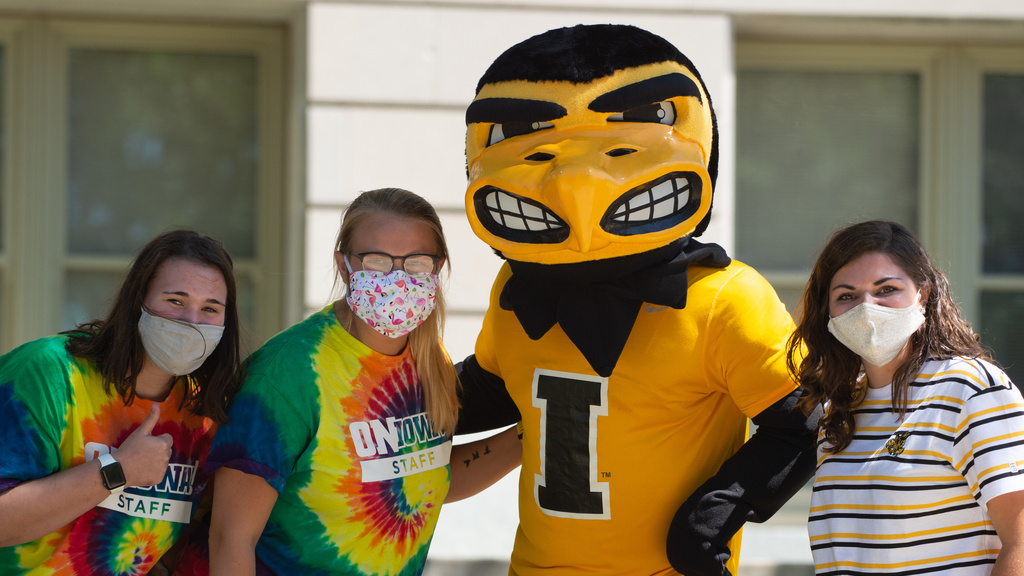
Ways to Make a Difference: A Resource for Faculty and Staff
The "Ways to Make a Difference" handout, developed by the First-Generation Task Force, now the 1stGen@Iowa Faculty & Staff Collaborataive, serves as an introduction to first-generation students at the University of Iowa. The handout gives a brief description of what it means to be a first-generation college student, provides insight on how some UI first-gen students experience college, and summarizes a few strategies that, when implemented, will help first-gen students succeed. The handout was developed using research and best practices, institutional data, and interviews with current University of Iowa students who identify as first-gen college students.
"Ways to Make a Difference" is intended to be used as a resource that provides initial insight on how the campus community might better understand and positively influence our first-generation students' collegiate experience.
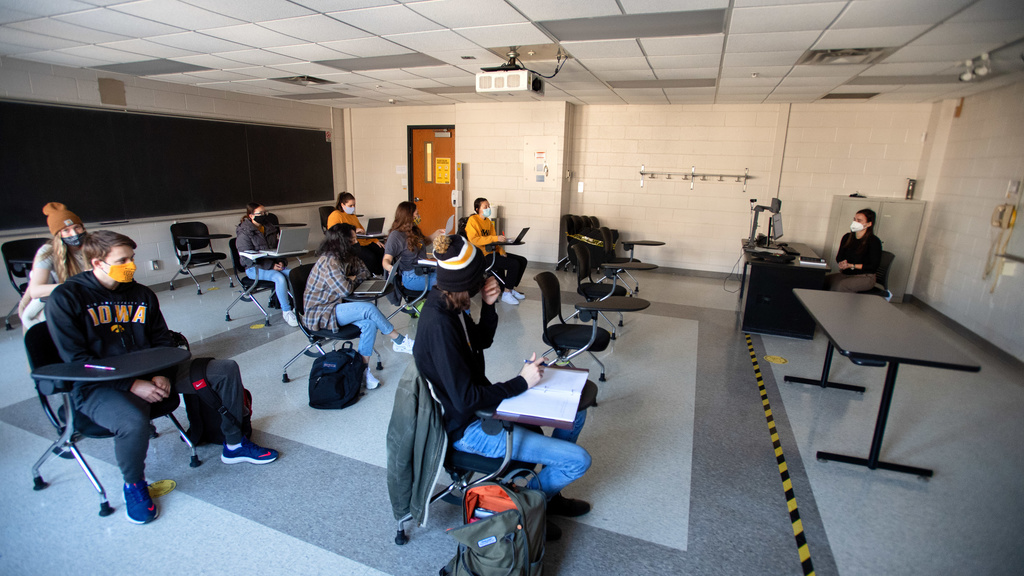
Ways to Make a Difference: A Resource for Faculty, Teaching Assistants, and Graders
The Office of Teaching Learning & Technology Center for Teaching, in collaboration with Dr. Carolyn Colvin, Associate Professor in Teaching and Learning in the College of Education, developed this document as a companion (or "side two") to the Ways to Make a Difference handout. This second document focuses on strategies specifically for faculty, teaching assistants, and graders to support first-generation students in the classroom.

Give Me Five: 5 Ways to Support First-Gen Students in the Classroom
In Spring 2020, colleges and universities across the globe, including the University of Iowa, abruptly moved classes online due to the COVID-19 pandemic. This shift to operating almost exclusively in virtual environments had massive, long-lasting implications for students' learning, personal and mental health, and financial well-being. As the semester came to a close, the Office of Assessment, along with other campus entities, sought to better understand students' experiences during this time. The university's multi-pronged approach to learning how to support students included administration of a comprehensive survey (see the Office of Assessment website for more information).
Survey results found that all students expressed non-academic concerns that affected their academics. In each case, however, first-generation students reported the same concerns, but at higher levels of frequency than their continuing generation peers. The First-Generation Task Force used this information to create a short handout that can be quickly digested and easily implemented in the classroom.
The initial version of this handout, published in Fall 2020, was developed using data and input gathered at the start of the pandemic in Spring 2020. However, the strategies outlined on the 2023 revised handout remain relevant even in post-pandemic classroom settings. Additionally, while this document was created with data and quotes from first-generation students, using these strategies in the classroom will be of benefit to all students.
More Ways to Make a Difference
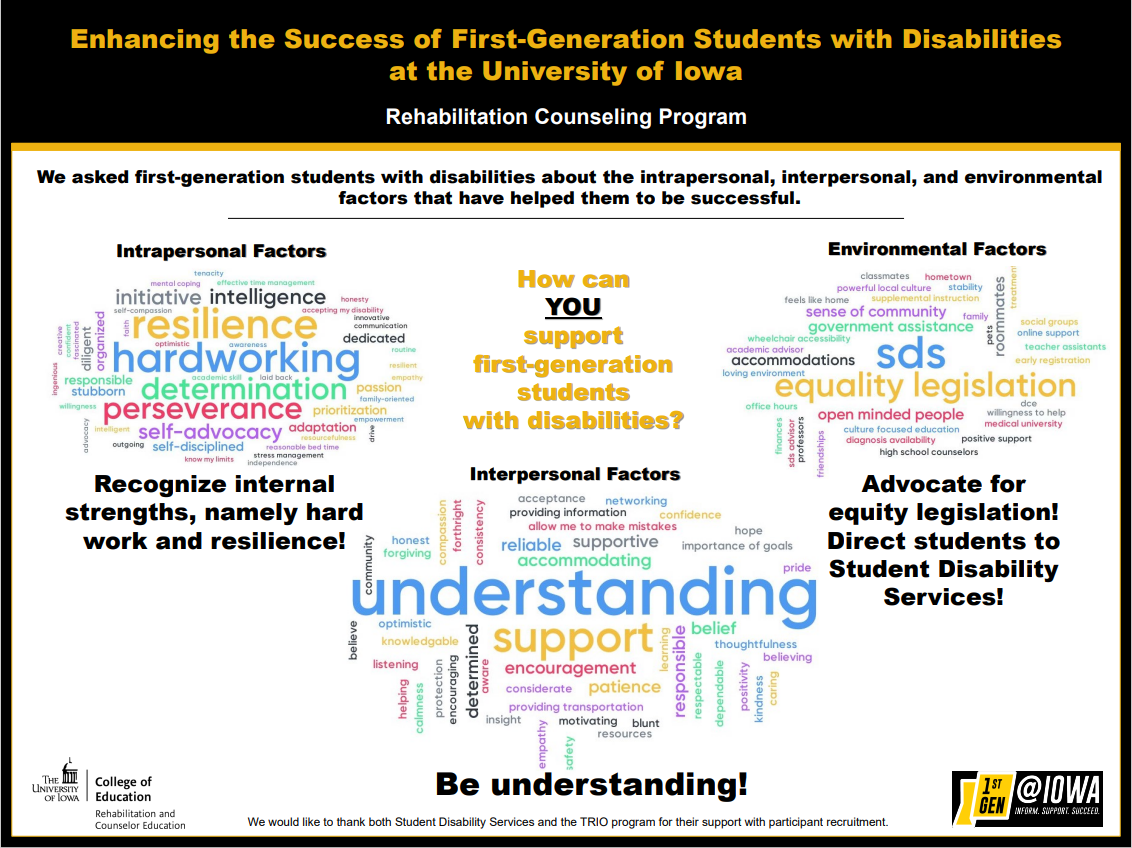
Additional strategies to help students succeed can be found in these UI and external resources.
Note that clicking on the links listed here will result in you leaving the 1stGen@Iowa website. You may "right click- open link in new tab" if you do not wish to do this.
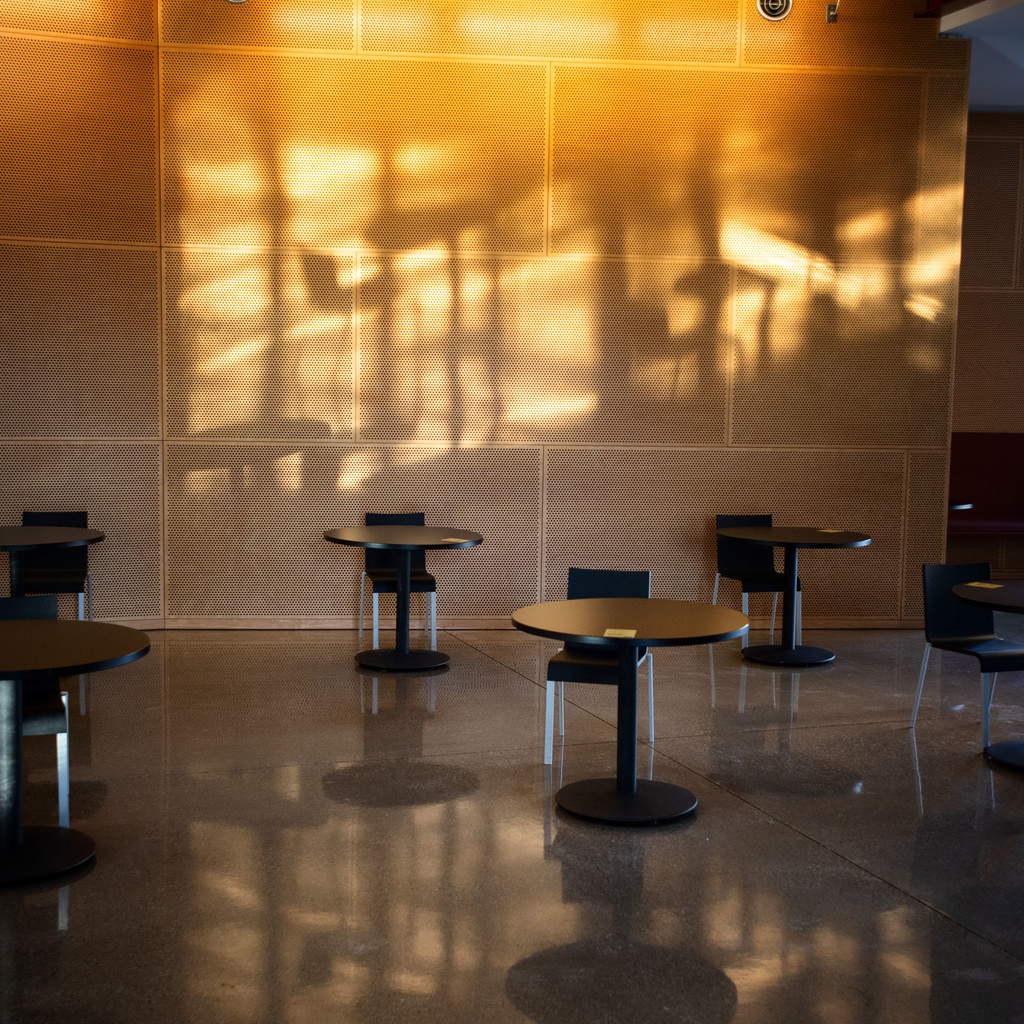
Report a Student Concern
If there is an immediate concern regarding a student's safety,
please contact the University of Iowa Department of Public Safety at (319) 335-5022 or dial 911.
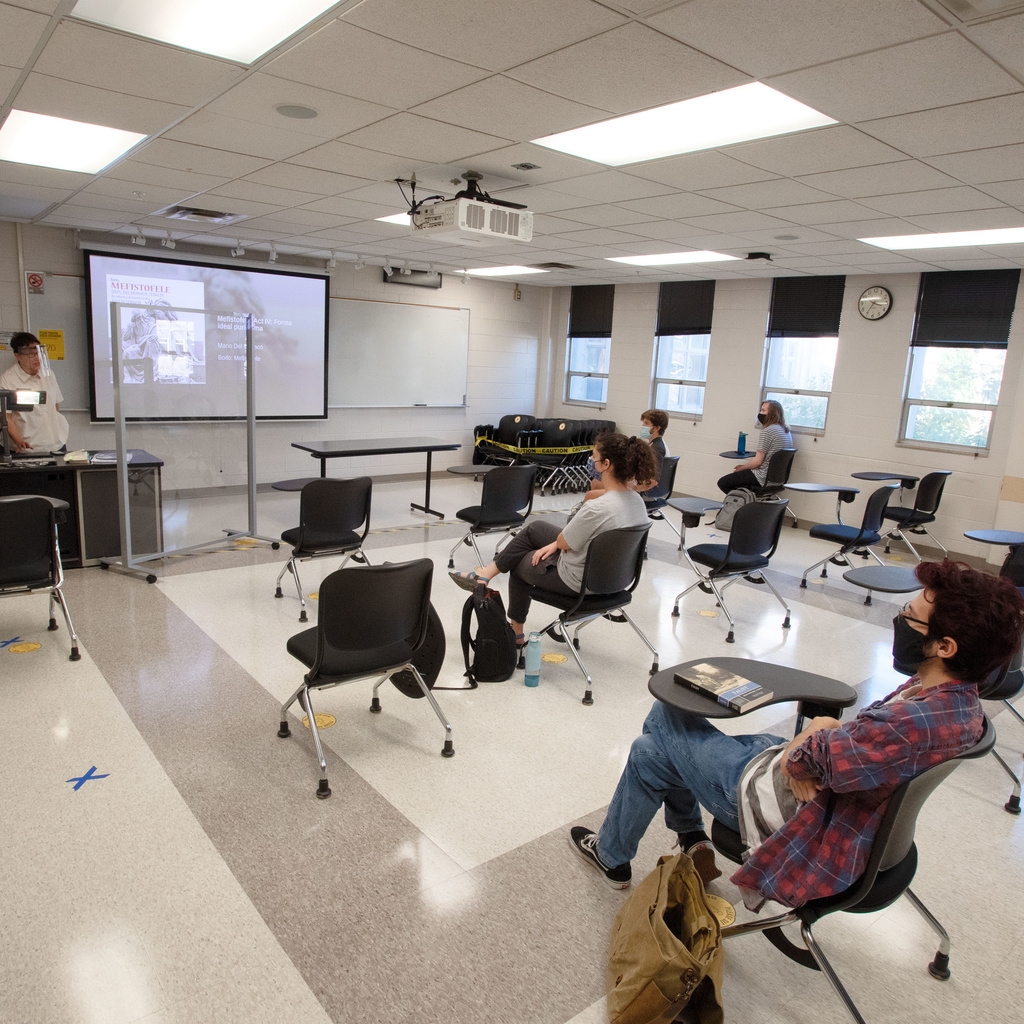
Trauma-Informed Teaching
Trauma can "rewire" the brain to function in survival mode, making it difficult to be creative, focus on complex projects, and visualize or plan for the future beyond just a few days. Trauma-informed teaching is a pedagogical approach to teaching that takes into account the affect that trauma has on learning.

Teaching First-Generation College Students
A comprehensive guide that provides additional context for the first-gen college experience, classroom strategies, and a full list of references.
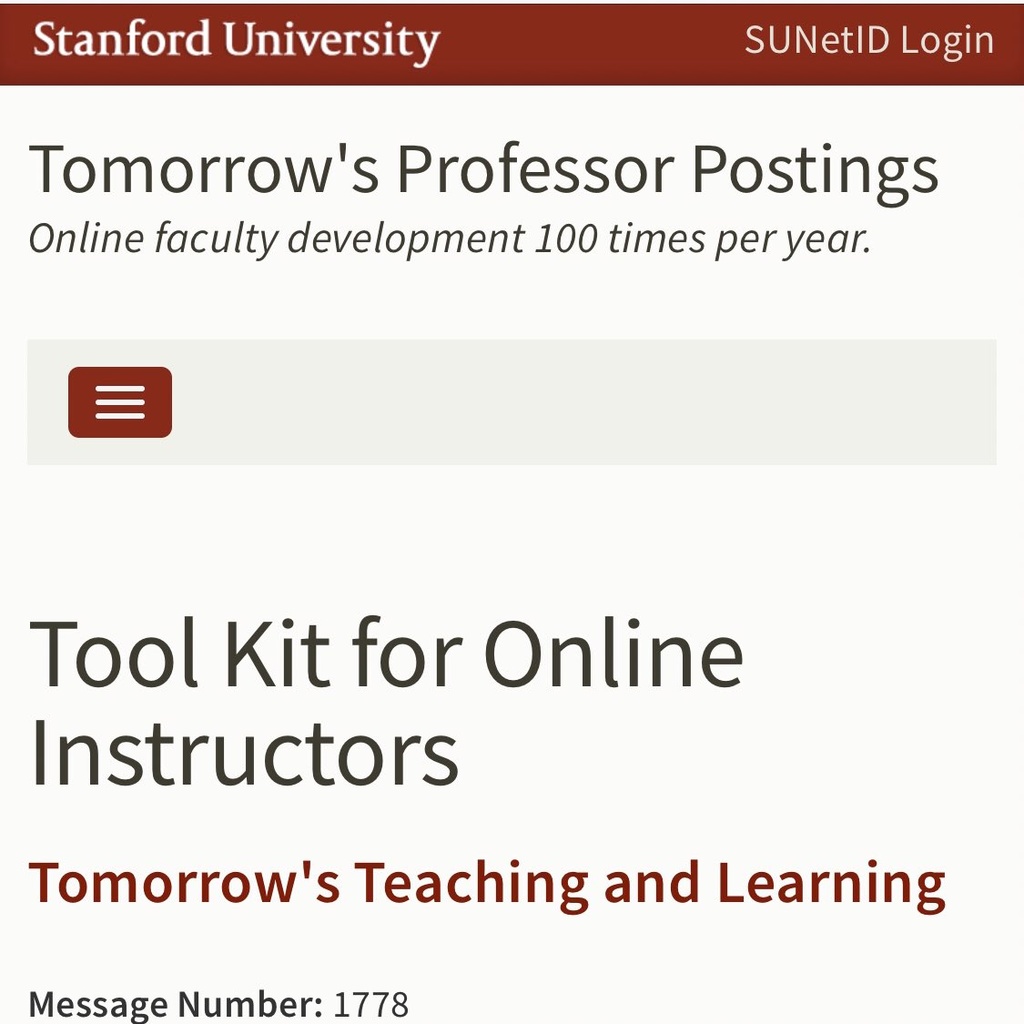
Don't Be Alone During Office Hours
"Follow some of these tips and you just might find yourself visited in office hours by a student who is so interested that he just wants to hear more about your work because, as the student on the panel relayed, 'I thought my professor was just so cool. I wanted to talk with her more.' Who doesn’t like the sound of that?"

